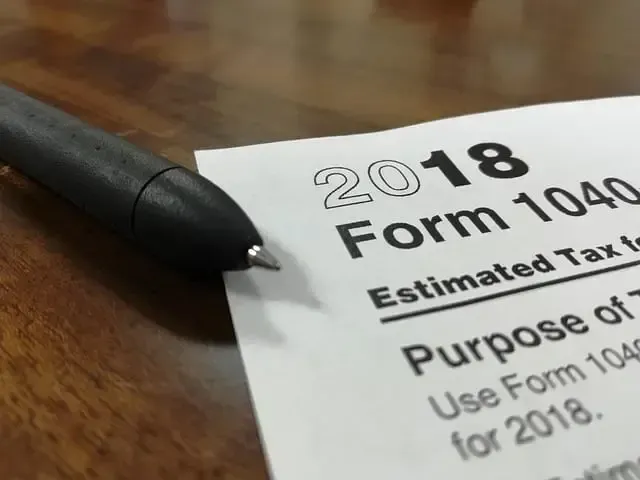
Who Should File A Tax Return?
Filing a federal tax return is often viewed as an obligation, but it's not just about fulfilling a legal requirement. It can be a valuable opportunity to secure financial benefits and refunds. Many individuals might be uncertain about whether they need to file, but various factors, including income, filing status, age, and potential credits, should be considered. In this article, we will delve into the reasons why you should file a return, even if it's not mandatory, using the insightful guidance provided in the reference "Who Should File A Tax Return?"

Reasons to File a Tax Return:
1. Tax Withheld or Paid: Unlocking Refunds and Over-payments
When contemplating whether to file a federal tax return, one of the foremost considerations is the tax withheld by your employer or any estimated tax payments you may have made. If your employer has withheld federal income tax from your paychecks or if you diligently made estimated tax payments throughout the year, there's a possibility that you've overpaid your taxes. Overpayment may not be immediately evident, but it's a potential windfall waiting to be claimed through a tax return. Filing your return becomes the key to unlocking this refund, allowing you to recoup the excess funds that have been withheld or paid, putting more money back into your pocket.
Overlooking this aspect could mean missing out on a substantial refund that could significantly impact your financial situation. Whether you are a meticulous planner who estimated taxes accurately or had more withheld than necessary, filing a tax return is your avenue to financial fairness, ensuring you receive what is rightfully yours.

2. Earned Income Tax Credit (EITC): A Bonus for Lower Incomes
The Earned Income Tax Credit (EITC) stands as a beacon of financial relief for individuals and families with low to moderate incomes. If your earnings were below $51,567 last year, filing a tax return could make you eligible for this credit, potentially resulting in a considerable tax refund. Families with qualifying children can particularly benefit, with the EITC offering refunds of up to $6,044.
The EITC Assistant tool on IRS.gov is a valuable resource to determine eligibility, making the filing process more accessible. Filing a tax return in this scenario not only aligns with legal obligations but serves as a proactive step toward improving your financial well-being. The EITC is designed to lift the financial burden on those with modest incomes, and filing your return ensures you don't miss out on this beneficial opportunity.

3. Additional Child Tax Credit: Maximizing Support for Families
For parents and guardians with qualifying children who didn't receive the full Child Tax Credit, the Additional Child Tax Credit can be a game-changer. This credit allows you to maximize the financial support available for your child, bridging the gap between the initial credit and your actual child-related expenses.
By filing Schedule 8812, Child Tax Credit, along with your tax return, you open the door to additional credit, potentially providing much-needed financial relief. This additional credit recognizes the financial commitments of supporting a child and emphasizes the importance of accurately claiming all entitled benefits. Failing to file for the Additional Child Tax Credit means potentially leaving money on the table that could contribute significantly to your family's financial stability.

4. American Opportunity Credit: Investing in Education
The American Opportunity Credit is a tax benefit specifically designed to alleviate the financial burden associated with education. If you're a student or supporting one in their first four years of higher education, filing a tax return becomes a crucial step to accessing this credit. With the potential to receive up to $2,500, the American Opportunity Credit eases the strain of educational expenses, making pursuing higher education more feasible.
Even if you owe no tax, the credit allows for up to $1,000 to be refunded per eligible student. Filing Form 8863, Education Credits, is imperative to unlock these benefits. By doing so, you not only comply with tax regulations but also take advantage of a valuable opportunity to invest in education and secure a more stable financial future.

5. Health Coverage Tax Credit (HCTC): Affordable Health Insurance for Qualifying Individuals
The Health Coverage Tax Credit (HCTC) is a lesser-known but impactful credit aimed at making health insurance more affordable for individuals who have received specific benefits. If you've received Trade Adjustment Assistance, Reemployment Trade Adjustment Assistance, Alternative Trade Adjustment Assistance, or pension benefit payments from the Pension Benefit Guaranty Corporation, you may qualify for the HCTC.
Filing for this credit is a practical step toward reducing the financial strain of health insurance premiums. The HCTC covers 72.5 percent of qualified health insurance premiums, making healthcare more accessible for you and your family. Exploring eligibility and filing for the HCTC is not just about tax compliance; it's about taking control of your healthcare costs and ensuring that you benefit from the available financial support.

Filing a federal tax return is not merely a compliance task; it's a strategic financial move. The reference "Who Should File A Tax Return?" provides valuable insights into the reasons why individuals, even those not mandated to file, should consider doing so. Whether it's reclaiming overpaid taxes, leveraging tax credits, or accessing refunds, filing a return can positively impact your financial well-being. As tax laws evolve, staying informed about potential benefits ensures you make the most of available opportunities. So, before dismissing the idea of filing a return, carefully assess your situation to see if you might be leaving money on the table. Remember, a tax return is not just about meeting obligations; it's about securing your financial future.

